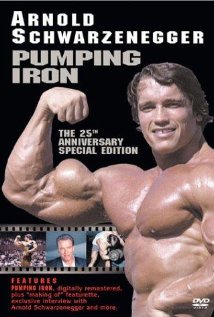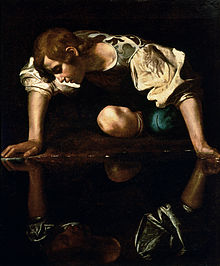This is some raw, unedited truth, coming straight to your dome from my dome. I’m writing this as I sit at my desk upstairs in my parent’s house. I’m home from college and it’s the summer and I’ve got absolutely nothing to do. That’s a lie because not only am I doing something now but I’ve been doing something all day, even if that thing I’ve been doing all day is sitting around. I was reading Infinite Jest by David Foster Wallace, which is a large and really good book. Sometimes I’m worried that I’m reading it just so people will think I’m smart. Or have good taste.. But only people in real life will think that, and most of the people I compare my self to are online, and they’ll think I’m positing. Well the book is good, anyway. Some of it is boring. I’ve stared at a screen for hours today. I use the internet a lot. I wonder what I’d be doing all day if I wasn’t using the internet. I have to pull myself away from the internet, like I’m doing now, even though I’m on the internet now. But this is kind of just writing on the internet, or typing into it, I’m not really writing, writing is harder than this because I can’t write nearly as much in a short time. I wonder how the founding fathers wrote things. Those guys had big ol pens that they used to write out books and then they used the printing press, I guess? They didn’t use the printing press to just make their books, they probably wrote them first. This is all speculation. Anyways, when I write I write in my journal and I really do write, but it is cut and dry, forsooth. I was thinking this summer is one of the few times I’ll get to do whatever the fuck I want to and be creative and have FUN WITH IT! I’m a bit concerned by this type of logic, though. I could make my whole life into making what I wanted to. But there’s a specter looming of money, expectations, and satisfaction. What if it doesn’t work out? Can I really justify to myself that I’m fine doing the work I’m doing, which is really play, is good and worthwhile if no one pays me for it? OR rather, that I make no money on it? What good am I possibly doing by making shit like this even if it contributes to some granule of understanding in one stupid person across the globe in a different state of origin. Here’s the thing: I can’t believe my own eyes. That didn’t make any sense, for real. For rilla rilla real dealerinoo. But here’s the thing campers: I cna’t stop. I’ll make myself comfortable with these words on this screen typing if it’s the last thing I do. And there’s nothing anyone except me can do to stop me. Here’s a cliche you might know: self-censorship is mthe most common type of censorship. That’s right, the things you want to say, the things I want to say, they’re limited by what you think others will think of you, but even more so, they’re limited by what You think of You. When I say something, boldly, there’s a piece of my identity in those words, those words are mine, I own them, the idea is strictly mine. Even if what I say is taken verbatim from someone else’s mouth or writing, I’m depositing my faith in my words into what they say. This gives language a lot of power, that maybe it doesn’t even have. They’re just little characters with sounds that form big pieces of different sounds that are associated with ideas, yet they emcompass every abstract and rational thought that I have. Not only that, but they’res different languages with ideas I can scarcely comprehend because they’re in a dialect that I don’t speak, e.g. they are symbols that I have not associated meaning with. Not to say that I couldn’t, but their meaning is lost on me completely, unless it is in the English Language. So Here’s what I’m going to do. This SUMMER, this word with HEAVY MEANING, implying that I should be doing something grand, somthing magnificent and cool and memorable, that I will think about forever and ever and enjoy in my brain and miss for the rest of my life, that is until I die, I will write and write and write and maybe something good will come out of it. That’s write, I’m going to write write write, on my blog. I think this is internally something that makes me want to die inside from the thought of even doing because it seems cheesy to just write out words that are nonsensical and claim that they are as important as any written thing. That I should be planning out and writing what I write, with sources, themes, and ideas. But before I plan any logistics, before any “design” or “control” goes into what I do write, I have to write, write, write. At least, that’s how I see it. It’s like picking up a camera, or a video camera, or a guitar, r any other creative object that I think I could do something with if I just did it more. If I just do it, I might get better at it. Actually doing it is going to be infinitely more valuable to me than sitting around thinking about how I could be doing something with it. That just makes the actually doing it all the more daunting. From what I know about writers who do this shit for a living, the are a bit aware of it’s seeming impossibility. David Foster Wallace said in an interview that if he had more time to do a book he was working on that he would “write for an hour a day, and worry about writing for 7 hours of the day”. I’ll say, actually doing this is so hard to start. Now that I’m balls deep into this paragraph, I’m pretty comfortable and I’m happy writing more words. Ernest Hemingway (I think) said that “The first draft of anything is shit,” and that’s something else that’s concerned me. I mean, if I’m not going to be good at it any way, I should just keep doing something I’m moderately good at. I think overall, I’m not confident in my ability writing. I believe that I could do, and write, and have ideas for, something great and magnificent and transient and resonating, but when I get down to my journal, whatever comes out is total garbage. My journal is just a recap of the day, though, and is almost like a list. What’s written here will be more cohesive, and it’s comforting in writing this that no one, and I mean no one, will read this (this far) I say this with a sort of smirk almost coming across my face because I secretly hope, of course, that this will take off and someone will get this far and be like “ooooh! not so fast!” So if you’ve made it this far, great work! You’ve wasted your time. Sort of how I feel like I’m wasting mine. There’s a finite amount of time, even though time is sort of nonexistent. Time ticks and ticks away as I write each word here. I could be doing something else, anything else. I could be writing a song on a guitar. I could be watching the ballgame with my parents. I could be designing a schematic for a cool new concept car. I could be drawing a picture of an Asian wome\an scooping ice cream. I could also be taking pictures. I could be driving to my college town and having sex with a girl, if I wanted to. Would any of these accomplish anything? Let’s say I want to create something, and really keep rolling with it, establish it. A “creative voice” as I called it in a recent academic paper. How does my voice carry? Do I have to do anything to make this creative voice (consciously) or will it just merely emerge when I start being creative and do my thing? My conclusion is now, with writing, just to try it, to see if any sort of voice I can call my own just appears, a unique voice of my own just emerges onto the paper by virtue of it being me and only me that is putting it there, doing it in a way I only can, because I’m the only one who did. How much am I influenced, in this very moment of in-the-moment creation, by writers and authors before me? How much am I influenced by writers I have read, like Nabokov, Heller, and Wallace, and how much am I influenced by people I haven’t read, or that the people I’ve read have read–such as Pynchon and Joyce (Although I read portrait)? How much am I influenced by browsing the internet all day and scrolling through half-hearted comments and shallow writings? How much am I influenced by other creators of video, people I’ve met and idolized for no reason in real life and online? Can I ever know?How self-conscious am I in my writing when I realize that the same professor said that asking multiple questions in a row usually indicates confusion, not insight? How confused am I? Pretty confused.
Well, I’m going to now use this platform daily to chronicle some sort of idea or theme daily, and accompany it with a picture. I fear irony because I think it’s dishonest, but I might use some. It tends to be on the back burner when I’m using good punctuation and grammar, which I consider this post to be using. There’s a lot of things to write about, things to discuss with myself. It will be interesting to see if I find any answers along the way, mostly I’ll be looking at questions of my own design, or somebody else’s design, or perhaps a single word, or maybe a phrase, or an idea, or a concept, or a thing, or something in the media, and I’m NOT going to do it pretentiously, which is a word I absolutely hate, definition being “attempting to impress by affecting greater importance, talent, culture, etc., than is actually possessed.”, that’s right, I’m going to do it with the talent, importance, and culture that I actually do possess.
Pretentiousness is one of the most annoying parts of humanity because we all have it to some degree. We’re always trying to impress each other, it’s pathetic. I do it, and you do it, too. If someone asks you about a subject you don’t know anything about, let’s say sports (assuming you’re not a fan of a given sport, let’s say, uh tiger baseball.) I ask you if you’re a tiger baseball fan, and you go, “well, not really, I mean I like them. They’re my home tiger ball team.” And leave it at that. Well, that’s not really pretentious, I guess, but it’s not totally true. What I’m trying to say is that pretentiousness is dishonesty, and it’s pervasive as hell. Especially in college. I’m reading shit because I feel like I should read it, other people are vaguely trying to explain what they think they learned. I wish people would kind of just shut up about stuff before they knew what the hell they’re talking about. Asking questions and trying to explore meaning from a text is one thing, but trying to explain it to someone as if you’re an authority figure on it when you’ve read it once is another. The latter is pretentious, the former is genuine, honest, intellectual, and that’s what makes it useful in learning. What made me think about this pretentiousness business is Infinite Jest. I’m reading it now and have this sense that people will think that I’m a total knob for wanting to read it in public. Yeah, maybe I am showing it off a little bit, because it’s a really neat book. But I look on twitter feeds and pretty much anywhere on the internet that is “social” you will find people talking ironically about how “profound” and “hipster” and cool it is. Ironically, this makes the book the opposite of those things, and I’m pretty sure it’s made it look “tryhard” to read the book. Here’s the thing, folks: it’s a good book! They’re people that are critiquing it for purely superficial reasons, annoying, absurd. But is it pretentious? I’ll let you decide if those judging a piece they have no understanding of would lead them to be one who is “attempting to impress by affecting greater importance, talent, culture, etc., than is actually possessed.”
Until tomorrow.
-Topmost Flavor



